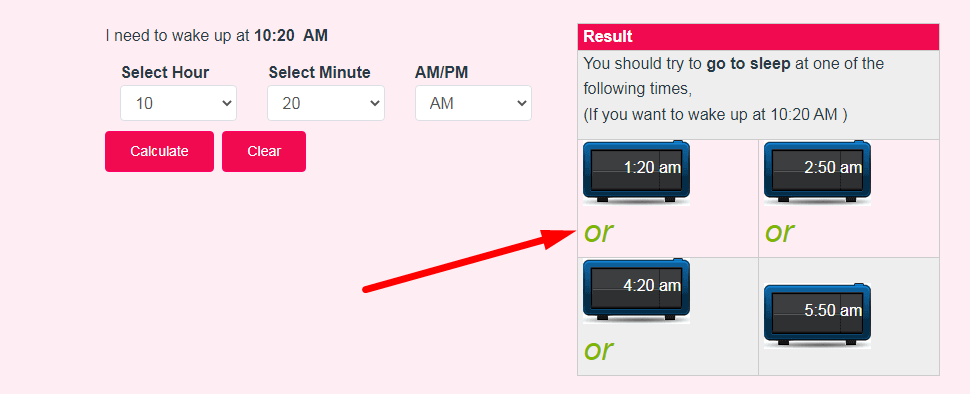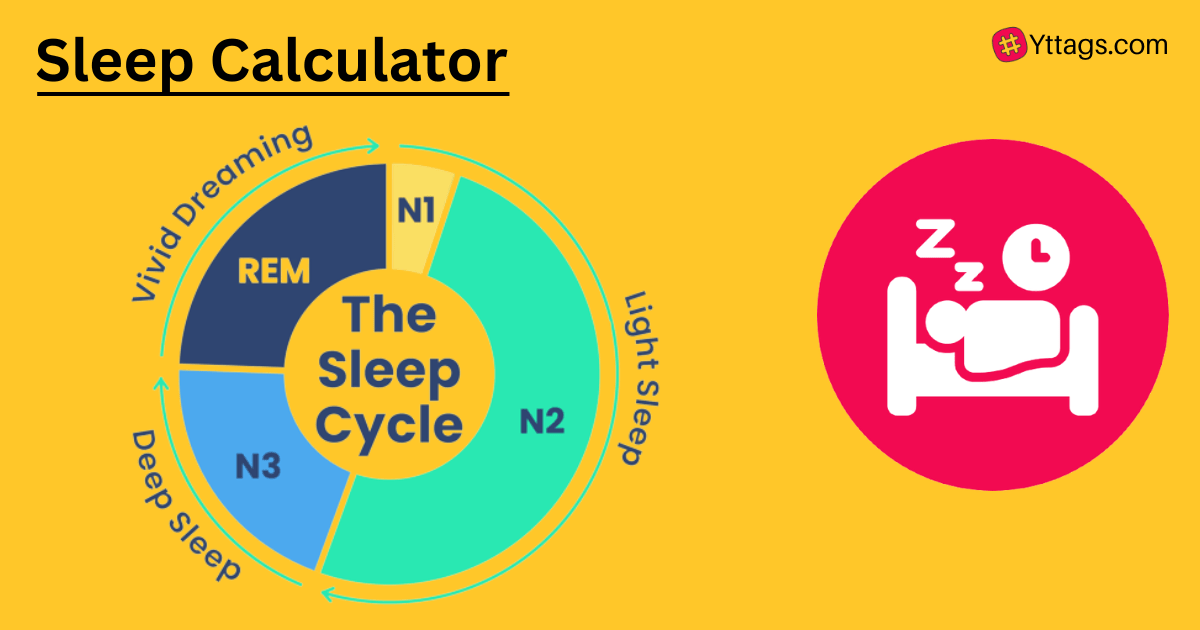Sleep calculator
Calculator to compute the time to wake up or go to bed based on sleep cycle or duration of sleep required.
Also learn more about Nappy Time Calculator for Students, Childrens and all.
I need to wake up at :
Select Hour
Select Minute
AM/PM
If you use this great tool then please comment and/or like this page.
Average Rating: Tool Views: 499
Average Rating: Tool Views: 499
Subscribe for Latest Tools
How to use this Sleep calculator Tool?
How to use Yttags's Sleep calculator?
- Step 1: Select the Tool

- Step 2: Enter The Following Options And Click On Calculate Button.

- Step 3: Check Your Sleep calculator Result

Want to wake up in a good shape? Find out the perfect bedtime or wake up time to rise feeling refreshed and energized.
If you want to link to Sleep Calculator page, please use the codes provided below!

FAQs for Sleep calculator
What is a Sleep calculator?
A sleep calculator is a tool or app that helps individuals determine the optimal bedtime or wake-up time based on their sleep patterns and sleep cycle duration, aiming to improve the quality of their rest.
Does sleep calculator work?
Sleep Health Foundation says that the assumptions that the Sleep Calculator makes, and the advice it gives, are not based on scientific evidence.
How do you calculate perfect sleep?
Here's how it works:
The average sleep cycle is 90 minutes long.
A typical night of sleep includes 5 full sleep cycles.
90 x 5 = 450 minutes, or 7.5 hours.
Starting at your wake time, work back 7.5 hours to find your bedtime.
How many hours sleep should I get calculator?
Preschool 3–5 years 10-13 hours (including naps)
School-age 6-12 years 9-12 hours
Teens 13-18 years 8-10 hours
Adult 18 years and older 7 or more hours
Why is sleep important?
Good sleep improves your brain performance, mood, and health. Not getting enough quality sleep regularly raises the risk of many diseases and disorders. These range from heart disease and stroke to obesity and dementia.